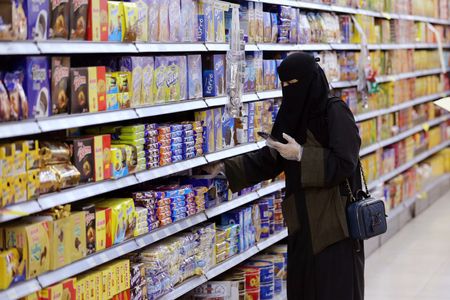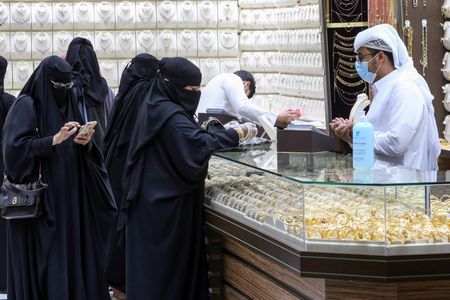By Yousef Saba
DUBAI (Reuters) – Saudi Arabia’s annual inflation inched up to 3.4% in January from 3.3% a month earlier as higher housing expenses continued to drive up living costs, government data showed on Wednesday.
Housing, water, electricity, gas and other fuels, with a 25.5% weight of the consumer basket, the largest category, rose 6.6% from a year earlier.
“Actual rents for housing increased by 7.7% in January 2023, reflecting the increase in rents for apartments of 19.3%,” the country’s General Authority for Statistics said.
Food and beverage prices, which were the main driver of inflation during much of 2022, rose 4.2% from a year earlier.
Compared to December, consumer prices rose 0.2%, the statistics agency said.
With the exception of July 2020 to June 2021 – when inflation spiked following a tripling of the value-added tax rate – annual inflation is at its highest level since July 2016, according to Refinitiv data.
“Inflation is now at or very close to its peak and we expect the headline rate to ease to 1.5-2.0% y/y by the end of this year,” Capital Economics said in a research note.
“If anything, the risks to our inflation forecast lie to the downside if the long-mooted cut to the VAT rate is implemented.”
In April 2021, Saudi Arabia’s Crown Prince Mohammed bin Salman said tripling VAT to 15% was a temporary decision that would last between one and five years before being reduced to between 5% and 10%.
(Reporting by Yousef Saba; Editing by Sonali Paul and Helen Popper)


